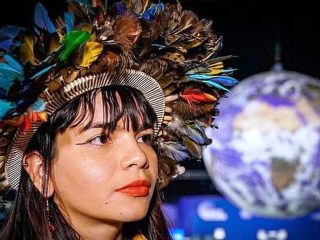Bolivia. The Ayoreos. The Wedding, Celebration full of cultural symbols.
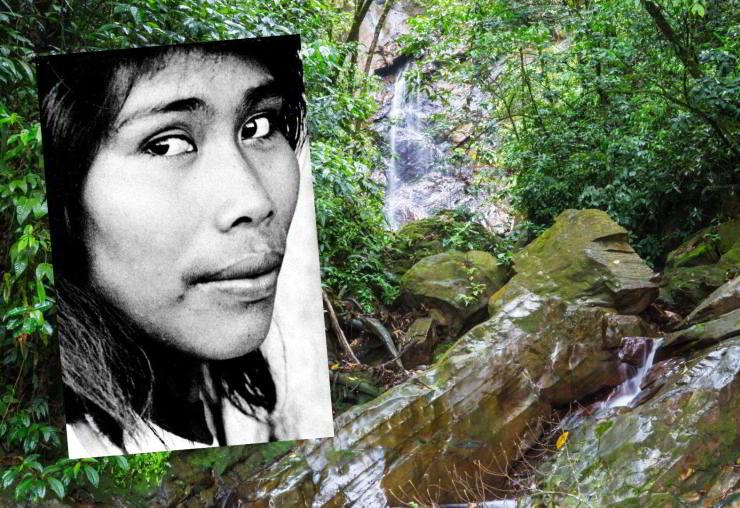
The Ayoreos are an ethnic group that live in the eastern part of Bolivia. They number about 4,000 and live distributed in 29 communities. The name “Ayoreo” means “true men”. It refers to their way of life as hunters and gatherers. A glance at their wedding celebration.
The celebration of marriage is not as rigidly established as in other cultures. It is, above all, a spontaneous ritual celebration based on daily life. For this reason, it is a celebration full of cultural symbolic signs.
The first step towards marriage for the Ayoreo begins with the process of falling in love. The meeting place is the rivers where they fish or bathe. This is where the new couples meet and enjoy themselves. Another meeting place is the jungle, where they meet intimately and declare their love for each other.
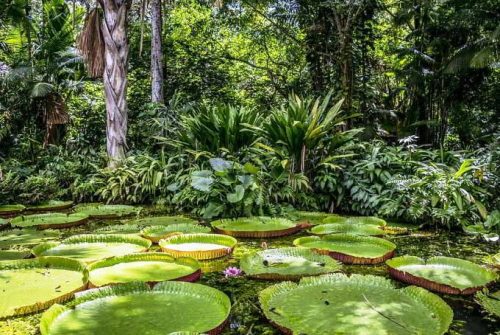
One of the places where new couple meet and have fun is in the jungle, where they declare their love for each other. Photo: Pixabay
The next step is the formalization of the intention to live together, for which the young couple makes known their situation and their intentions for their future life. It is said that in many cases of Ayoreo, it is the child that unites the couple. For this reason, when the parents oppose the couple but the couple already have their first child, they are considered married and the parents must accept them and let them live together. But out of respect, the children must communicate with their parents to let them live as a couple.Once the agreement is reached, the time when the wedding will take place is set. On the day of the ceremony, the two prepare themselves with all their cultural elements. The groom and his friends go hunting in the jungle and the bride and her friends prepare the yucca or corn drink. The shaman (the wise man who is also the head of the community) is in charge of consolidating the ritual of the new couple. He gives them his blessing according to the requests of the couple and the families of both parties.
The shaman calls them on the requested day and blesses them with prayers and icaros (songs inspired by the spirit of the jungle), thus invoking the spirits for the good of the couple.
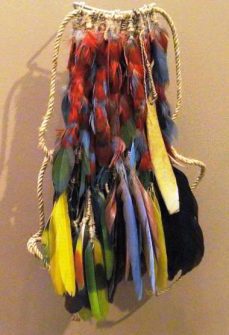
Ayoreo parrot feather ornament. Photo: AMNH/Daderot
For the Ayoreo, ritual ceremonies are a connection with the mystical spirits of the forest or mother nature. For this reason, each ritual celebration is prepared with many symbols, such as water, fire, earth and air. These four elements have a complementary meaning for the Ayoreo wedding. It is also the moment of rebirth with new blood, breathing air and body heat to continue a new path together with a new partner without going wrong.
The indigenous Ayoreo communities connect with the cosmos through this type of ritual ceremony performed in sacred places. In the case of weddings, they are celebrated in a new house or in a new place that signifies the beginning of the new couple.After the spiritual ceremony presided over by the shaman, the social or community party takes place. A typical dish is shared, which is rice with beans, accompanied by a tasty asado de monte (barbecue) and its yucca or corn.
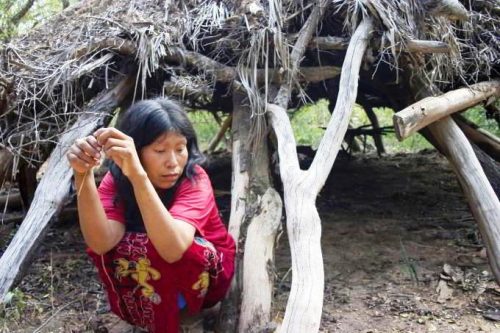
Ayoreo woman. Ayoreo people at risk of extinction. Photo: Survival International
Everyone shares what the mother jungle provides them through animals and fruits. To express their joy, there is no shortage of typical music made of bells, rattles and whistles. The bride and groom dance in a circle accompanied by the guests, who are usually the closest. Thus, the nuptial wedding ceremony is concluded.
In the Ayoreo marriage, there is no godfather or godmother. The only intermediaries are the families of the bride and groom. Furthermore, they can live wherever they want, it is a matter of coming to an agreement. A third person who intervenes is the shaman who united them by ritually blessing their union. The commitment of these intermediaries is to give the new family a plot of land to build their new home and to grant them community rights. If an Ayoreo does not marry, he cannot exercise any position of authority in the community, but after marriage, he has the right to assume any position of authority, and to be respected and recognized as part of the Ayoreo community. (Open Photo: Ayoreo young man. Photo: Survival International – Bolivia Amazon Forest. Photo 123rf)
Jhonny Mancilla Pérez

